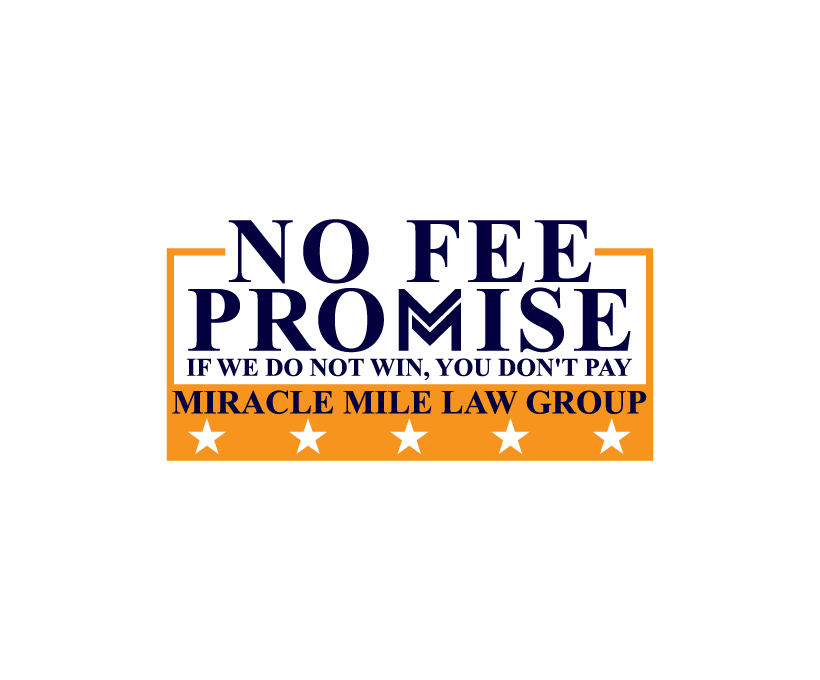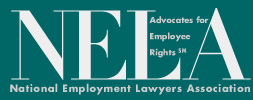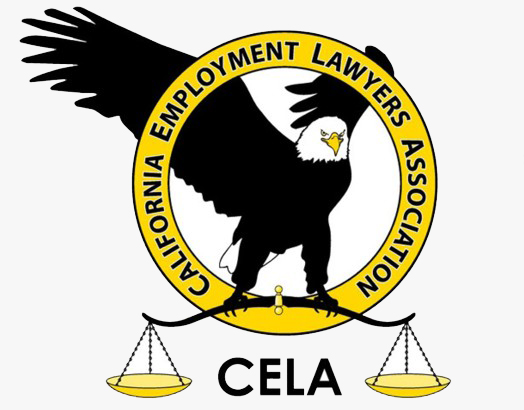Whistleblower
The whistleblower attorneys at Miracle Mile Law Group are specially trained in handling whistleblower retaliation and discrimination lawsuits.
Whistleblower Attorney Los Angeles

A whistleblower is an employee who reports their employer for violations of state or federal law. Many times, a whistleblower is the David going up against the Goliath. Whistleblowers put themselves and their reputations on the line in order to expose the illegal activities of their employees, illegal activities which often times places people at risk of harm. Fortunately, whistleblowers are protected under Federal and State law.
The federal government enacted the Whistleblower Protection Act of 1989 to protect federal whistleblowers who work for the government and report possible violations of:
- law,
- rules,
- regulations,
- mismanagement,
- gross waste of funds,
- abuse of authority, or
- a substantial and specific danger to public health and safety.
If a federal agency takes retaliatory personnel action against any employee or applicant because of disclosure of the violation, the federal agency may be liable for damages. Federal law also provides protection for persons who report that the government has been defrauded.
The False Claims Act, also known as the “Lincoln Law” allows individuals who are not associated with the government to file lawsuits on behalf of the government. These Qui Tam laws allow these whistleblowers to recover anywhere between 15-25 percent of the damages incurred as a result of defrauding the government. Since 1983 the federal government has received almost $40,000,000,000 in damages as a result of the false claims act.
The California legislature has recognized the need to protect whistleblowers from adverse employment actions by their employers. That is why California enacted Labor Code section 1102.5, part of which states that:
“An employer, or any person acting on behalf of the employer, shall not retaliate against an employee for disclosing information, or because the employer believes that the employee disclosed or may disclose information, to a government or law enforcement agency, to a person with authority over the employee or another employee who has the authority to investigate, discover, or correct the violation or noncompliance, or for providing information to, or testifying before, any public body conducting an investigation, hearing, or inquiry, if the employee has reasonable cause to believe that the information discloses a violation of state or federal statute, or a violation of or noncompliance with a local, state, or federal rule or regulation, regardless of whether disclosing the information is part of the employee’s job duties.”
This means that if your employer fires you, demotes you, or takes any other type of adverse action against you because you reported, or threatened to report, a violation of law to authorities, they may be liable to you for damages. Whistleblowers are protected from discrimination in the workplace just as employees are protected from discrimination based on their sex, race, age, or disability.
Usually, to be successful in a whistleblower claim, the whistleblower must usually prove the following factors:
- That you engaged in protected activity, such as reporting (or threatening to report) a violation, testifying as a witness, or some other action to help enforce the law.
- That the employer knew or believed you took such protected activity. In order to prove this, it is helpful to keep all emails or texts which show you notified your employer that there is a violation of law occurring. It also helps to keep records of any actual notification to authorities.
- That you suffered an adverse employment action. This can come in the form of a firing (which would rise to the level of wrongful termination), a demotion in pay, or a demotion in position.
- That your protected activity caused the employer to take adverse action. To prove this, the employee should keep records of all discussions with their employer. Many times when an employer takes the adverse action immediately after the employee reports the violation, this factor can be circumstantially proved.
There is no requirement that specific, direct evidence conclusively proves that an employee was fired for reporting some violation of law, a discriminatory act, or other violation of a statute. Circumstantial evidence, a series of events or actions taken together, can show that the employer acted illegally.
$3,200,000: An employee worked a company for over 10 years when he started reporting problems including the high turnover and absenteeism of one of their contractors. The complaints regarded the contractor’s safety testing failures and the failure of the contractor consultants to provide necessary safety information to the company’s employees. His supervisors responded by asking the employee to keep quite because the contractor had political ties. The employee was later fired. The jury in this case awarded the employee $3,200,000 in damages. See Bailets v. Pennsylvania Turnpike Commission.
$1,500,000: An employee physician worked for a hospital for 6 years when she started noticing instances of widespread fraud and violations of patient care standards. After reporting these instances, the plaintiff was retaliated against and felt that she had no reasonable choice but to resign from her job. She was later awarded over $1,500,000 in damages. See Kim v. Mercy Clinic Springfield Communities.
$5,400,000: Wells Fargo abruptly fired a Los Angeles Wells Fargo branch manager after he reported several incidents of possible bank, mail, and wire fraud by two bankers he supervised. The manager, who never received a poor job evaluation, was essentially blacklisted in the banking community after Wells Fargo fired him. The jury later awarded the employee $5,400,000 in damages. See Eshet v. Wells Fargo N.A.
$2,850,000: A Florida physician working as a surgeon reported that his fellow colleagues intentionally ignored the surgical-clearance process for certain heart surgeries, caused a high death rate that was more than double than what it should, and violated standard of care, putting patients’ lives in danger. After reporting these instances, the surgeon was fired. The jury awarded the man $2,850,000 in damages. See Chaudhry v. Florida Hospital.
$17.2 million: Prime Healthcare, a hospital, was accused of knowingly “up-coding” Medicare claims, falsifying diagnosis information to increase reimbursement. The allegation included “a deliberate corporate-driven scheme” to boost inpatient admissions even when an inpatient stay was medically unnecessary. The case eventually settled for $17,200,000. See U.S. ex rel. Karin Berntsen v. Prime Healthcare Services Inc.
$4,200,000: The Pacific Alliance Medical Center was hit with a massive lawsuit wherein they were accused of making illegal referral agreements to community clinics. While the total settlement in this case was $42,000,000, the whistleblower, Paul Chan, is entitled to over $9,200,000.
- Common Examples of Illegal Retaliation Against Whistleblowers
- You gets fired because you reported your employer for a violation to the Environmental Protection Agency (EPA).
- An employee reports safety violations of the Occupational Safety and Health Administration (OSHA) to her employer numerous times and threatens to report these violations if things are not changed. Subsequently, the employee is fired immediately after threatening to report her employer.
- A worker fails to meet their employer’s request to falsify tax records so that the employer can avoid tax penalties. After refusing to do such acts, the employer fires the employee.
- Hardworking employee gets fired because they report illegal drug use
- A worker gets fired because he or she reports some other violation of law
- Common Industries Where Whistleblowing Frequently OccursWhistleblowing is not a new phenomenon as people have been coming out with their stories of company wrongdoing for years. In fact, the term “whistleblower” was coined in the early 19th century when law enforcement regularly used whistles to alert the public of an ongoing crime.
However, the public and private sector are both seeing a rise in the numbers of whistleblowers who have the courage to get out and speak up about company wrongdoing. Some common examples of industries where whistleblowing occurs include:
- Healthcare,
- Government,
- Dental Offices,
- Hospitals,
- Tax Corporations,
- Manufacturing
Here at Miracle Mile Law Group, we receive many questions surrounding whistleblower laws. Some of the most frequently asked questions include:
If you notice a violation of law by your employer, speak up. Do not stay silent while you or others face discrimination, retaliation, or a hazardous work place. In order to assist you, we have listed numerous resources to report violations of law. The link will get you to exactly where you need to go:
- Occupational Safety and Health Administration (OSHA)
- Los Angeles Police Department (LAPD)
- Los Angeles Fire Department (LAFD)
- United States Department of Justice
- U.S. Department of Justice – Civil Rights Division
- Equal Employment Opportunity Commission (EEOC)
- Department of Fair Employment and Housing (DFEH)
- State of California – Labor Commissioner’s Office
- United States Environmental Protection Agency (EPA)
- Los Angeles County Department of Public Works
- Federal Bureau of Investigations (FBI) – Civil Rights Division
- Whistleblower Protections Program
- Federal Trade Commission (FTC)
- United State Department of Labor – Wage and Hour Division
HAVING A WHISTLEBLOWER ATTORNEY BY YOUR SIDE GREATLY INCREASES THE CHANCE FOR RECOVERY.
The whistleblower attorneys at Miracle Mile Law Group are specially trained in handling whistleblower retaliation and discrimination lawsuits. If you believe you have been or are currently being retaliated against based on your whistleblower activities, give us a call at (888) 244-0706 or contact us online for a FREE case evaluation.
Services in Los Angeles




